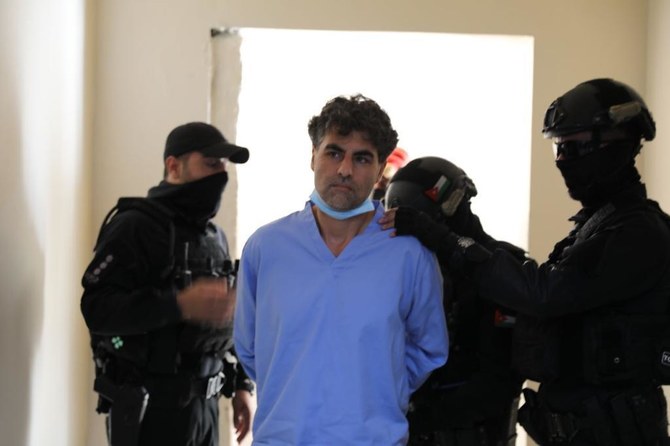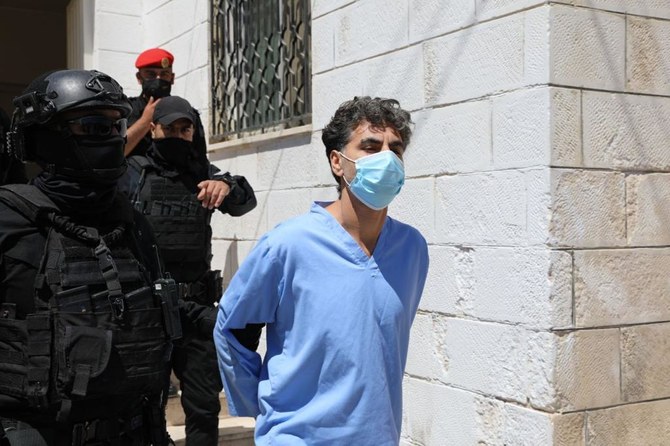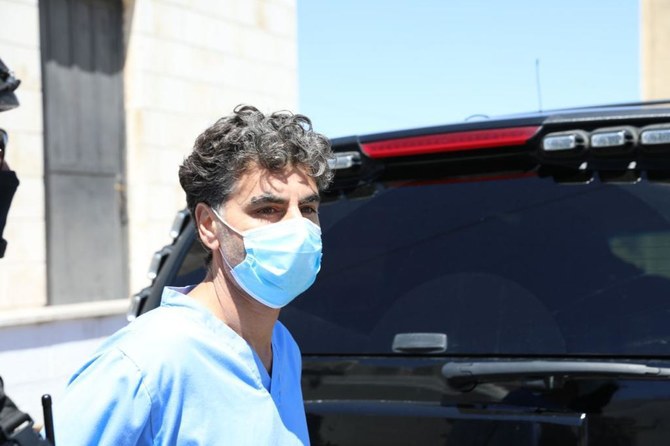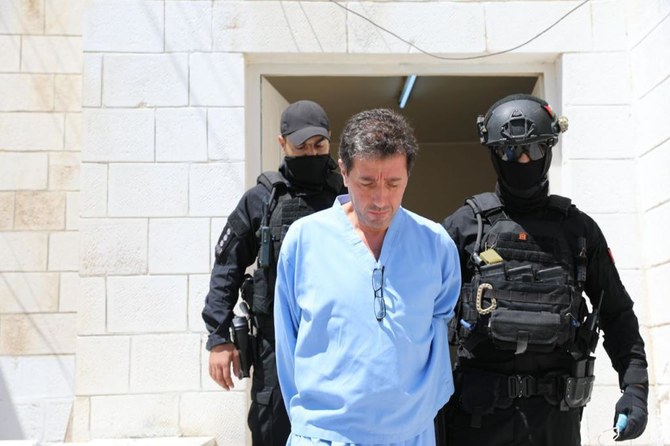AMMAN: Jordan’s military State Security Court (SSC) on Monday sentenced Bassem Awadallah and Sharif Hassan bin Zaid to 15 years of hard labor each for their involvement in a high-profile sedition case.
Awadallah, a former chief of the Jordanian Royal Court, and Bin Zaid, a distant member of the royal family, stood trial on charges of plotting to undermine the government and the country’s security and stability.
The SSC allowed reporters to attend part of the hearing on Monday but from outside the courtroom via a TV screen.
Reading the charge sheet, the court president said that the case had to do with the Jordanian ruling system, the legitimacy of which “stemmed from the constitution which stipulates that the system of government is parliamentary with a hereditary monarchy.”
The judge added that Awadallah held several government posts in Jordan that enabled him to build a network of connections inside and outside the country. Bin Zaid, he said, was a Jordanian national who worked in the private sector.
The court was told that the two men had been friends since 2001 and had hostile attitudes toward the regime, the king, the legitimacy of the monarch’s rule, and the Jordanian state’s constants.
The military judge also said the suspects plotted to ignite chaos and sedition in the society, exploiting certain internal and external incidents.
“What happened was a criminal plotting from the suspects in fulfillment of their hidden desires and was targeting the existing regime. The court had clear and convincing evidence of the crime.”
Awadallah’s lawyer Mohammed Afif, a former SCC president, said he would challenge the verdict at the Court of Cassation (Supreme Court).
Awadallah and Bin Zaid were arrested on April 3 along with 15 other people suspected of involvement in the case, which also involved Prince Hamzah bin Hussein, a half-brother of Jordan’s King Abdullah II.
At the time, Jordanian authorities said that Awadallah, Bin Zaid, and Prince Hamzah were attempting to destabilize the country in collaboration with “foreign entities.”
Upon directives from King Abdullah, Prince Hamzah’s case was settled within the Hashemite family.
The Jordanian Royal Court published a letter signed by Prince Hamzah in which he vowed allegiance to the monarch and confirmed that he would act “always for His Majesty and his crown prince to help and support.”
The prince, 41, has been seen only once since April accompanying the king during the palace’s Jordanian independence celebrations on May 25.
British and US-educated Prince Hamzah was sidelined as former heir to the throne in 2004.
The SSC prosecutor had leveled sedition and incitement charges against Awadallah and Bin Zaid and accused them of conspiring with the prince to destabilize the country and fuel unrest against the monarch in collaboration with foreign parties.
Awadallah and Bin Zaid pleaded not guilty during their opening trial earlier in June. Both suspects presented written statements to the court.
The charge sheet against Awadallah and Bin Zaid said they were long-time friends because of the nature of their work and connection to the prince, who was seeking to become the ruler of Jordan, and “took advantage of certain incidents, including economic distress and a hospital tragedy in March, to create chaos and frustration in the country.”
Seven coronavirus disease (COVID-19) patients died in March at the New Salt Public Hospital, northwest of the capital Amman, when its oxygen supplies failed.
The charges said the three men regularly met at the home of Awadallah, who was reportedly “encouraging the prince to intensify his meetings with notables and tribal leaders.”
Their strategy included attacks and criticisms of King Abdullah, “with the hope of gaining popular support,” the charge sheet added.
































